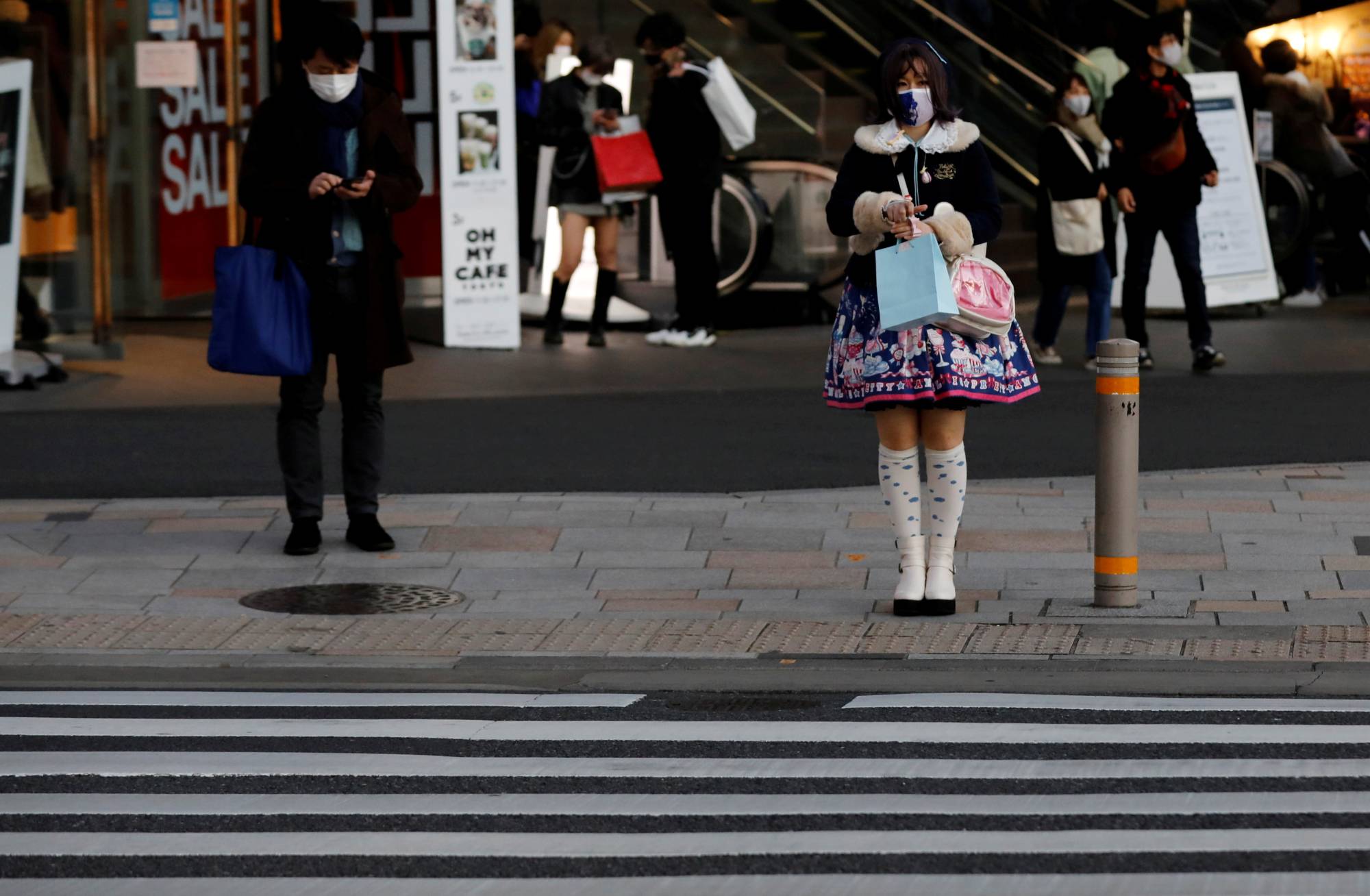With more than a third of around 36 million people age 65 and over having received a second shot of a COVID-19 vaccine, more and more people are starting to wonder if they can finally ditch face masks outdoors.
Mask-wearing and social distancing protocols differ from country to country depending on the virus situation and vaccine rollout, which can be confusing for the public.
British Prime Minister Boris Johnson, for example, announced Monday that England will end mandatory mask wearing and social distancing despite a recent surge in daily COVID-19 infections, with cases exceeding 20,000. The U.S. Centers for Disease Control and Prevention, meanwhile, has said that people who are fully vaccinated can remove their masks and no longer need to stay six feet (1.8 meters) apart, except in places required by states or on public transportation.
But many U.S. states still impose mask mandates, and so do many countries including Germany or France.
Officially, Japan, like China, has no legal mask requirement, but voluntary near-universal mask usage has been observed across the country. With the increase in people getting vaccinated, however, some people may think that wearing a mask is unnecessary after getting a second shot.
People are considered fully vaccinated two weeks after receiving a second dose of a vaccine such as that of Pfizer Inc. or a single-dose vaccine such as the one made by fellow U.S. drugmaker Johnson & Johnson. But the government’s coronavirus subcommittee is recommending that people continue to wear masks because even if they are vaccinated, they still can get infected.
The subcommittee has been warning the public to avoid the “three Cs” — closed spaces, crowds and close-contact situations.
Its analysis of recent cases involving new variants, however, has shown that even a situation involving only one of the “three Cs” would be enough to trigger a high risk of mass contagion. For instance, some recent infections were attributed to people staying near the source of infection for a long time despite mask-wearing and proper ventilation, the subcommittee said. People infected with new variants can emit higher volumes of the coronavirus, it added.
The subcommittee also cited the possibility that the virus will spread, even after people get their second shot, unless they wear masks and take proper precautions.

Here are the recommendations of the government’s virus subcommittee, headed by the government’s top coronavirus adviser Shigeru Omi, on how people should behave as the more contagious and virulent new variants spread.
- Ensure that your mask fits tightly around the nose in an appropriate manner. If possible, wear nonwoven disposable masks with high filter performance in situations where the risk of infection is relatively high, and avoid the “three Cs.”
- Even if you are wearing a mask properly, keep conversations indoors as short as possible and avoid talking loudly.
- Pay attention to ventilation more than ever before.
- Switch to telework as much as possible, and make sure to follow the previous three rules at workplaces.
- If you feel unwell, do not go to work or school, and if necessary, see your doctor.
- Even after you are vaccinated, wear a mask until the majority of the population has been vaccinated.
- Even after you are vaccinated, refrain from drinking in large groups until the majority of the population has been vaccinated.
In a time of both misinformation and too much information, quality journalism is more crucial than ever.
By subscribing, you can help us get the story right.
SUBSCRIBE NOW


